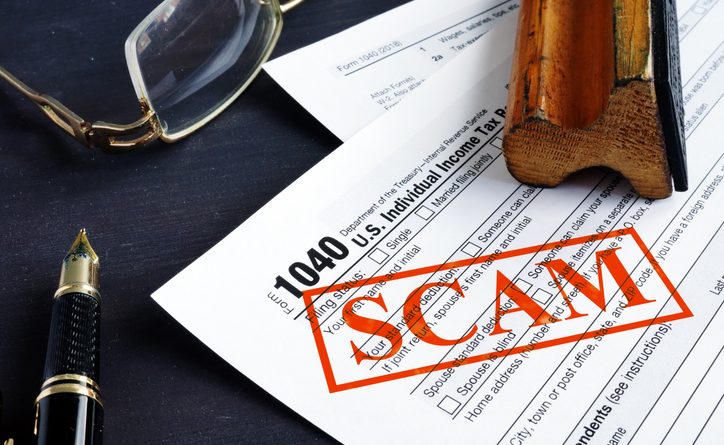Beware of tax scams
As return season approaches, here are several tips to safeguard your money
By Michael Pramik, Ohio Public Employees Retirement System
Feb. 1, 2024 – The number of tax schemes and scams has surged in recent years, with con artists operating year-round. To avoid falling prey to these tactics, taxpayers must stay alert as the tax-return season approaches.
One of the best tips is to file as early as possible. The longer you wait, chances increase that someone else might file a fraudulent return on your account. Do everything you can to protect your tax information. Vigilantly check your mailbox for your 1099-R tax form, which OPERS has mailed.
Know that the Internal Revenue Service doesn’t initiate contact with taxpayers via email or by phone for personal or financial details. Typically, they send a paper bill regarding owed taxes. In rare cases, the IRS might call or visit in person.
The agency and its authorized collectors won’t:
- Leave urgent or threatening voicemails.
- Threaten immediate involvement of local law enforcement for non-payment, deportation or license revocation.
- Demand immediate payment via prepaid debit cards, gift cards, wire transfers or checks to third parties.
- Demand payment without providing the opportunity for the taxpayer to question or contest the owed amount.
Report any suspicious IRS, Treasury, or tax-related phishing scams by forwarding the email and attaching the file to phishing@irs.gov.
The IRS maintains an annual list of the “dirty dozen” tax scams. Here are several other guidelines the IRS suggests to recognize and steer clear of prevalent tax-related scams:
- The IRS offers free tax return preparation for qualifying taxpayers. But if you do hire a professional tax preparer, do your homework. Make sure the person has year-round availability.
- Verify your tax preparer’s IRS Preparer Tax Identification Number, or PTIN. All paid preparers must possess this credential.
- Avoid “ghost” preparers, those who won’t sign the tax return they’ve prepared for you.
- Be cautious of unrealistic promises of substantial refunds from tax preparers. If the return amount seems too good to be true, it likely is. Every taxpayer is responsible for paying their fair share of taxes.
- Never sign a blank tax return. Taxpayers bear ultimate responsibility for the content they submit to the IRS.
- Confirm the deposit location of your refund. It should be directed to your bank account, not to any account held by your tax preparer.
- The IRS will never call to threaten legal action. If you encounter such a call, disconnect immediately, because it’s a scam.
- Exercise caution with text messages, emails or social media posts purporting to be from the IRS. They may contain malicious software that compromises personal information. Avoid responding to or clicking on any associated links.
- Safeguard your personal and financial details. Refrain from sharing this information in response to unsolicited communication claiming to be from the IRS.
- Promptly report instances of fraud to law enforcement.
Michael Pramik
Michael Pramik is communication strategist for the Ohio Public Employees Retirement System and editor of the PERSpective blog. As an experienced business journalist, he clarifies complex pension policies and helps members make smart choices to secure their retirement.
